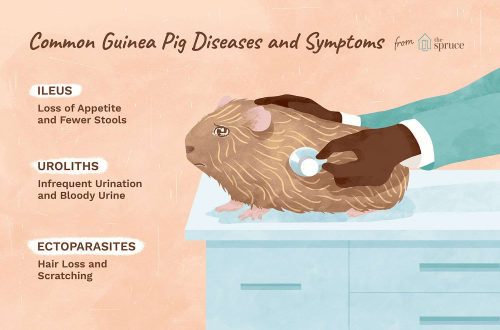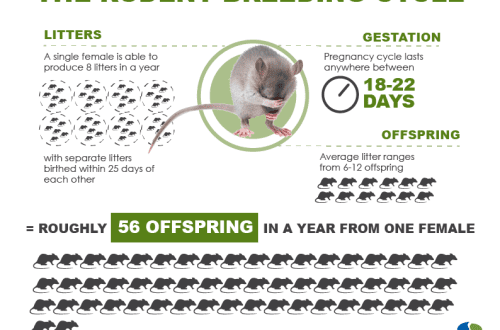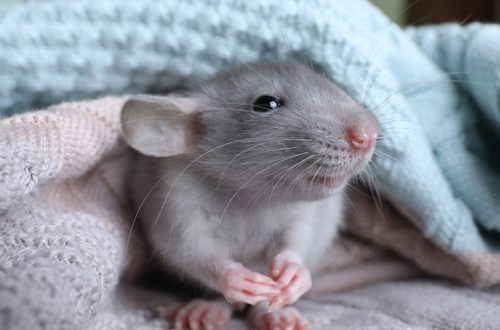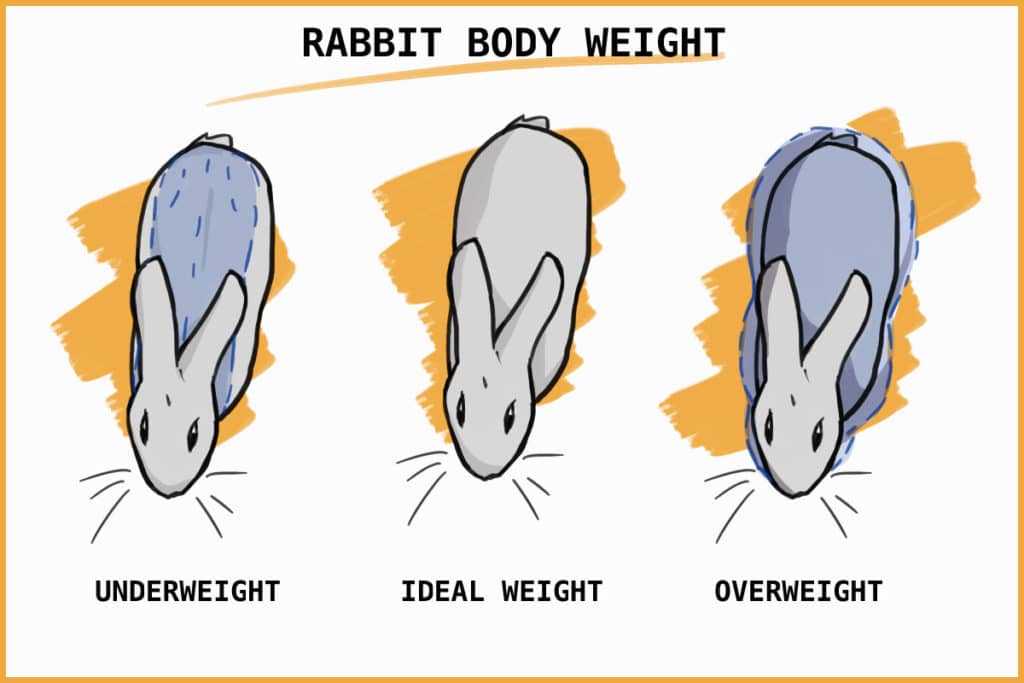
Obesity in rabbits
Obesity in pets is a fairly common problem faced by most pet owners around the world. It doesn’t matter if you get a dog, cat, guinea pig or rabbit – the consequences of a sedentary lifestyle and an unbalanced diet will not slow down to manifest themselves in the form of excess kilograms. And no matter how touching your plump pet may seem, being overweight is always a huge burden on the heart and other vital organs. Therefore, this problem needs to be addressed – and as soon as possible. In this article, we will talk about how to deal with excess weight in rabbits.
In general, there are three most common causes of obesity in rabbits (and in pets in general). It:
– sedentary lifestyle;
– unbalanced nutrition;
– metabolic disorders (or other health problems).
Most often, of course, we are talking about the first two points. If you are sure that the pet’s regimen is perfectly balanced, and his leisure time is quite active, you need to fully examine his body. Perhaps overweight is the result of impaired metabolism and some disease that might not have manifested before.
As for a sedentary lifestyle and an unbalanced diet, these are common problems that can be avoided thanks to an attentive and responsible approach to keeping your pet. Ornamental rabbits do not need to get food on their own and cover long distances daily, as their wild counterparts do in nature. At home, rabbits live in aviaries, cages and move little. To solve this problem, it is recommended to let pets out of the cage (aviary) more often so that they can run around the room (always under your close supervision). You can also buy toys for them or a comrade of the same kind, so that they prefer an interesting pastime to an afternoon nap.
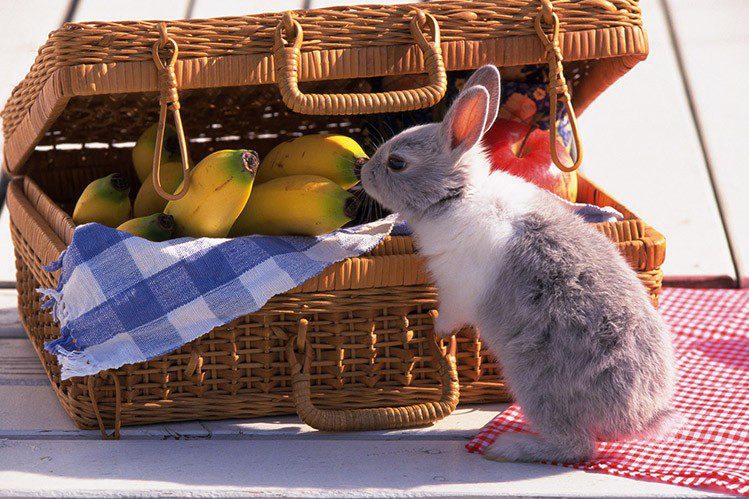
Now let’s turn to a balanced diet. And the first thing that needs to be said here is that any delicacies from the human table are contraindicated for rabbits. Even if you feed your pet with the most high-quality line, any violations of the diet in the form of treats from the table, etc. will not go unnoticed. The same goes for the chosen diet. You can feed your rabbit with an economy ruler for a long time and be sure that you are doing everything right. But economical diets are created on the basis of second-rate raw materials, and poor-quality food will sooner or later affect the body of the ward. Alternatively, overweight.
To avoid this, you should not save on feed. Proper nutrition is the basis for the harmonious development of the pet. And believe me, in the event of health problems due to poor quality feed, your treatment costs will more than cover the cost of good feed.
So what kind of food to choose for a rabbit? Preference should be given to proven brands that have proven themselves at the global level and are fully responsible for their product. Since rabbits are herbivores, the basis of the feed should be hay. It is best if the feed does not include grain at all, since it is rather difficult to digest by the body of herbivorous rodents. Pay attention to the content of fiber in the feed that is digestible by the rabbit. Very often, the percentage of fiber in general is indicated on the food packaging, but not all fiber is good for rabbits. Thanks to a balanced diet and adherence to a diet, your pet will not have problems with the digestive system and metabolism, and the likelihood of overweight will be significantly reduced.
If the rabbit is prone to obesity or overweight has already appeared, it is recommended to feed it with special dietary feeds. The ideal solution is to choose food in the form of pellets to eliminate the possibility of a pet’s food selective behavior. The fact is that many rabbits, when feeding, choose those or other components of the feed that seem to them the most appetizing. Such a diet is not balanced and provokes weight gain. Special diets in the form of pellets of the same size (for example, Micropills Vet Care Obesity) solve this problem. In addition, third-cut hay, the stems of which are rich in lignin, can be used as part of the feed to combat excess weight (for example, in Micropills Vet Care Obesity feed). Lignin promotes the removal of toxins from the body and improves bowel function, which allows you to reduce weight. Another advantage is nutraceuticals, which strengthen the tone of the body and improve metabolism.
Expert opinion, recommendations from a veterinarian or breeder whose competence you trust, and, of course, your own literacy and attentiveness, can help you choose the optimal line of food. Before choosing a line, always carefully study its composition and check the integrity of the packaging and the expiration date of the feed.
Do not forget that you should not change diets unnecessarily, since any changes in nutrition are always stressful for the body. Digestive disorders do not contribute to the elimination of excess weight, and indeed seriously weaken the body.
Be careful and take care of your decorative friends!



